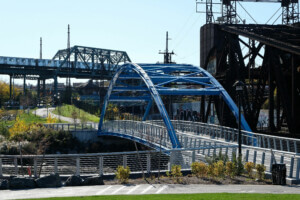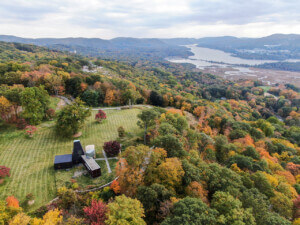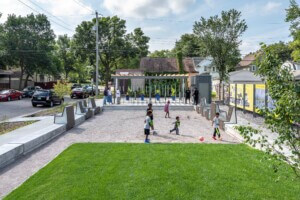The Mayor of Paris, Anne Hidalgo, has approved a $304-million (250 million euro) plan to transform the city’s famed Champs-Élysées into a pedestrian-friendly public space by 2030.
The ambitious restoration project, proposed by the local community and first unveiled in 2019, will overhaul the 1.2-mile-long central street in the French capital that connects the Arc de Triomphe to the Place de la Concorde into what Hidalgo refers to as an “extraordinary garden” in Le Journal du Dimanche.
Frustrated by the alienating effect that the luxury stores and expensive restaurants had on the locals, the Champs-Élysées committee has been campaigning for the redesign since 2018 and proposed the now approved project in 2019. The scheme was designed by PCA-Stream, a French architectural firm based in Paris. PCA-Stream principal and founder Philippe Chiambaretta stated that his goal was to convert the boulevard into a space that would be “ecological, desirable and inclusive.”
Lately, the “world’s most beautiful avenue,” as it’s sometimes known, has fallen on hard times and hosted several consecutive crises thanks to its prominent location in the heart of the French capital: After the gilets jaunes (yellow vest) protests, strikes, and high-end retail gentrification over the last 30 years, the scheme looks to return the street to local residents. The committee, headed by Jean-Noel Reinhardt welcomed the mayor’s good news.
PCA-Stream’s scheme seeks to close half of the street’s eight lanes to cars and insert pockets of greenery or “planted living rooms.” According to Chiabaretta, this will improve the air quality of a street that sees up to an average of 3,000 cars per hour. The revitalization will also introduce food kiosks and meeting spaces in an attempt to attract locals back into the area and return it to a space closer to its original purpose of fostering open-air comingling.
The avenue was originally conceived by André Le Nôtre, King Louis XIV’s landscape architect, in 1667 as an extension to the gardens at the Tuileries Palace to the southeast on the bank of the River Seine. In 1709, the finished boulevard took its name from the Greek Elysian Fields, an outdoor paradise for the righteous to frolic in for all eternity. The new renovation be delivered in two stages; the work at the Place de la Concorde, Paris’s largest public square, will be completed before the Olympic games in 2024 with the rest following, with a completion date set for 2030.











